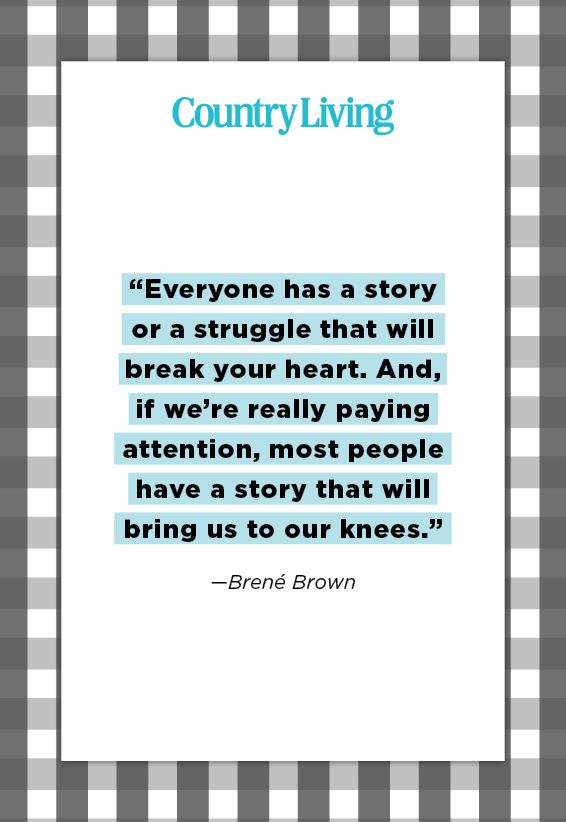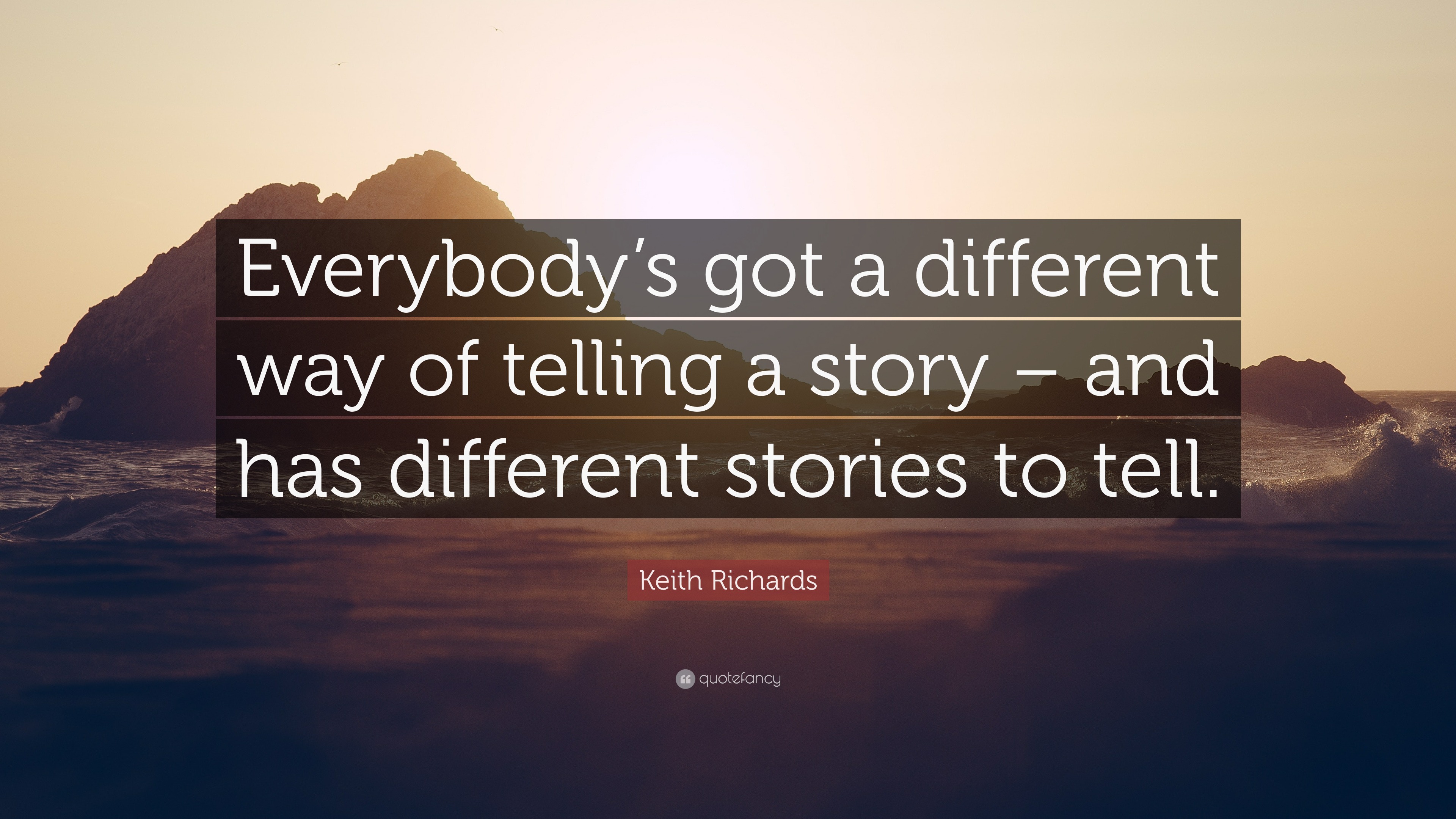

“It certainly can be taught and learned.” Here’s how to use storytelling to your benefit.Įvery storytelling exercise should begin by asking: Who is my audience and what is the message I want to share with them? Each decision about your story should flow from those questions.

#EVERYONE HAS A STORY TO TELL QUOTE FREE#
“We are programmed through our evolutionary biology to be both consumers and creators of story,” says Jonah Sachs, CEO of Free Range Studios and author of Winning the Story Wars. And fortunately, everyone has the ability to become a better storyteller. That means leaders who can create and share good stories have a powerful advantage over others. But stories create “sticky” memories by attaching emotions to things that happen. “Facts and figures and all the rational things that we think are important in the business world actually don’t stick in our minds at all,” he says. In our information-saturated age, business leaders “won’t be heard unless they’re telling stories,” says Nick Morgan, author of Power Cuesand president and founder of Public Words, a communications consulting firm. It’s an essential skill, but what makes a compelling story in a business context? And how can you improve your ability to tell stories that persuade? We tell stories to our coworkers and peers all the time - to persuade someone to support our project, to explain to an employee how he might improve, or to inspire a team that is facing challenges.


 0 kommentar(er)
0 kommentar(er)
